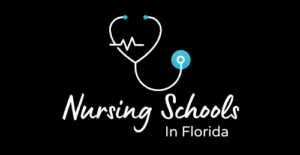Florida is not only famous for its sunny beaches and vibrant cities, but also for its excellent educational opportunities, especially in healthcare. For those who dream of becoming a nurse, the state offers many top-quality nursing schools that combine strong academic programs with hands-on training. Whether you want to become a registered nurse (RN), licensed practical nurse (LPN), or pursue advanced nursing degrees, Florida has a program to suit your goals.
Why Choose a Nursing Career in Florida
Nursing is one of the most in-demand careers in the United States, and Florida is no exception. With its large and growing population, including many retirees, the need for qualified nurses continues to rise. According to employment data, registered nurses in Florida enjoy strong job security, competitive salaries, and diverse career opportunities in hospitals, clinics, schools, and home healthcare settings.
Choosing to study nursing in Florida also means access to a wide variety of clinical experiences. From major hospitals in Miami and Orlando to community clinics in small towns, nursing students can gain practical skills in different healthcare environments.
Types of Nursing Programs in Florida
Florida nursing schools offer a range of programs designed to meet different career goals and educational backgrounds:
- Licensed Practical Nurse (LPN) Programs – Usually take about one year to complete and prepare students for entry-level nursing positions. LPNs provide basic patient care under the supervision of RNs and doctors.
- Associate Degree in Nursing (ADN) – Typically a two-year program that qualifies graduates to take the NCLEX-RN exam and become registered nurses. ADN programs are a great choice for those who want to start working quickly.
- Bachelor of Science in Nursing (BSN) – A four-year degree that provides a deeper understanding of nursing theory, leadership, and clinical practice. BSN graduates have more career options and are often preferred by employers.
- Accelerated BSN Programs – Designed for students who already have a bachelor’s degree in another field and want to switch to nursing. These programs can be completed in as little as 12–18 months.
- Master of Science in Nursing (MSN) – For nurses who want to specialize in areas like nurse practitioner, nurse educator, or nurse administrator roles.
- Doctor of Nursing Practice (DNP) and PhD Programs – Advanced degrees for leadership, research, and high-level clinical practice.
Top Nursing Schools in Florida
Florida is home to many respected nursing schools. Some of the best include:
- University of Florida (UF), Gainesville – Offers BSN, MSN, and DNP programs with a strong reputation for research and clinical excellence.
- University of Miami, Coral Gables – Known for advanced facilities and strong community healthcare connections.
- Florida State University (FSU), Tallahassee – Offers a range of programs and emphasizes evidence-based nursing practice.
- University of Central Florida (UCF), Orlando – One of the largest nursing programs in the state, with flexible options including online RN-to-BSN programs.
- Florida International University (FIU), Miami – Offers bilingual programs for Spanish-speaking students and strong links to local healthcare providers.
- Jacksonville University – Well-regarded for its accelerated and online nursing programs.
Admission Requirements
Admission requirements vary by school and program, but most Florida nursing programs require:
- A high school diploma or GED
- Minimum GPA (often 2.5–3.0 or higher)
- Completion of prerequisite courses in biology, chemistry, and math
- Passing scores on entrance exams like the TEAS (Test of Essential Academic Skills)
- Background checks and immunization records for clinical placements
Cost of Nursing Education in Florida
The cost of nursing school depends on whether you choose a public or private institution, and whether you are an in-state or out-of-state student. Public colleges and universities generally offer lower tuition for Florida residents. Financial aid, scholarships, and loan programs are available to help manage costs. Many hospitals also offer tuition reimbursement for employees who pursue nursing degrees.
Career Opportunities After Graduation
Nursing graduates in Florida have a wide range of job opportunities. Hospitals, outpatient clinics, nursing homes, schools, and home health agencies are always in need of skilled nurses. Specialized areas like pediatrics, oncology, critical care, and mental health nursing also offer rewarding career paths.
The average salary for registered nurses in Florida is competitive, with higher pay in urban areas and for those with advanced degrees or certifications. As healthcare needs continue to grow, nurses with BSN or MSN degrees will have even greater job prospects.
Tips for Choosing the Right Nursing School
- Check Accreditation – Make sure the school is accredited by the Commission on Collegiate Nursing Education (CCNE) or Accreditation Commission for Education in Nursing (ACEN).
- Look at NCLEX Pass Rates – High pass rates mean the school prepares students well for licensing exams.
- Consider Location and Clinical Sites – Proximity to quality hospitals can enhance your learning experience.
- Compare Program Formats – Decide between full-time, part-time, in-person, or online study options.
- Talk to Current Students – Their experiences can give you valuable insight.
Final Thoughts
Nursing schools in Florida offer a wide variety of programs to help students begin or advance their careers in healthcare. With strong job prospects, excellent training facilities, and diverse clinical opportunities, studying nursing in the Sunshine State can be the first step toward a rewarding and meaningful profession. Whether you choose a small community college or a large university, your nursing education in Florida can open the door to a lifetime of helping others while building a stable and respected career.
